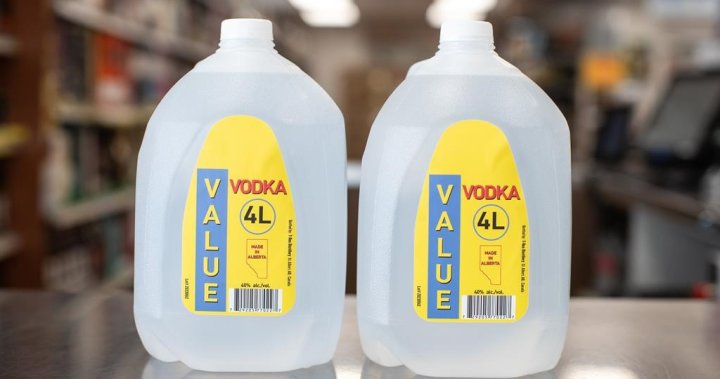T-Rex Distillery, an Alberta distillery, found itself at the center of controversy this week due to their four-litre vodka jugs that were being sold for $49.95 in some Edmonton stores. The Service Alberta Minister Dale Nally criticized the pricing of the product, despite it being in compliance with all regulations. Yvonne Irnich, the CEO of T-Rex Distillery, expressed her frustration over the negative comments made by the minister and demanded a public apology. She mentioned that the jugs had been on the market for almost a year without any issues until a photo on social media gained traction and sparked public backlash.
In response to the criticism, T-Rex Distillery announced that they would halt production of the vodka jugs. However, after receiving support from customers who praised the affordability of the product, they decided to restart production and aim to get the jugs back on shelves for $56.99. Irnich emphasized that there is a demand for low-priced alcohol and noted that there are even cheaper vodkas available in the market. The pricing of alcohol products in Alberta is based on supply and demand, with retailers having the flexibility to set their own sale prices within the guidelines set by the provincial oversight agency.
Despite the initial criticism from Minister Nally, he clarified that he would not impose floor prices on alcohol products. His press secretary stated that the government supports a free and open market while prioritizing social responsibility and the health and safety of consumers. Nally has expressed his view that certain regulations, such as the requirement for distilleries to produce 80% of their products in-house, are considered red tape and he is not looking to reinstate such rules. T-Rex Distillery has called on the government to reinstate this rule, stating that its removal a few years ago led to price reductions to stay competitive in the market.
The controversy surrounding the pricing of the four-litre vodka jugs brought both negative and positive attention to T-Rex Distillery. Irnich expressed frustration over the overwhelming hate directed towards the distillery, emphasizing that they had done nothing wrong. Despite the initial backlash, the support from customers who appreciated the affordability of the product encouraged the distillery to resume production and adjust the pricing to meet consumer demand. It is clear that the issue of alcohol pricing in Alberta is complex, with a balance needed between market competition and social responsibility.
The situation highlights the challenges faced by distilleries in navigating regulations and consumer expectations in the alcohol market. T-Rex Distillery’s experience serves as a reminder of the delicate balance between pricing products competitively to attract consumers and ensuring that prices are socially responsible. Moving forward, it will be important for the government and distilleries to engage in constructive dialogue to address concerns around pricing while supporting a thriving and competitive alcohol market in Alberta. Ultimately, finding a solution that balances affordability, quality, and social responsibility will be key to maintaining a sustainable and successful industry for all stakeholders involved.


